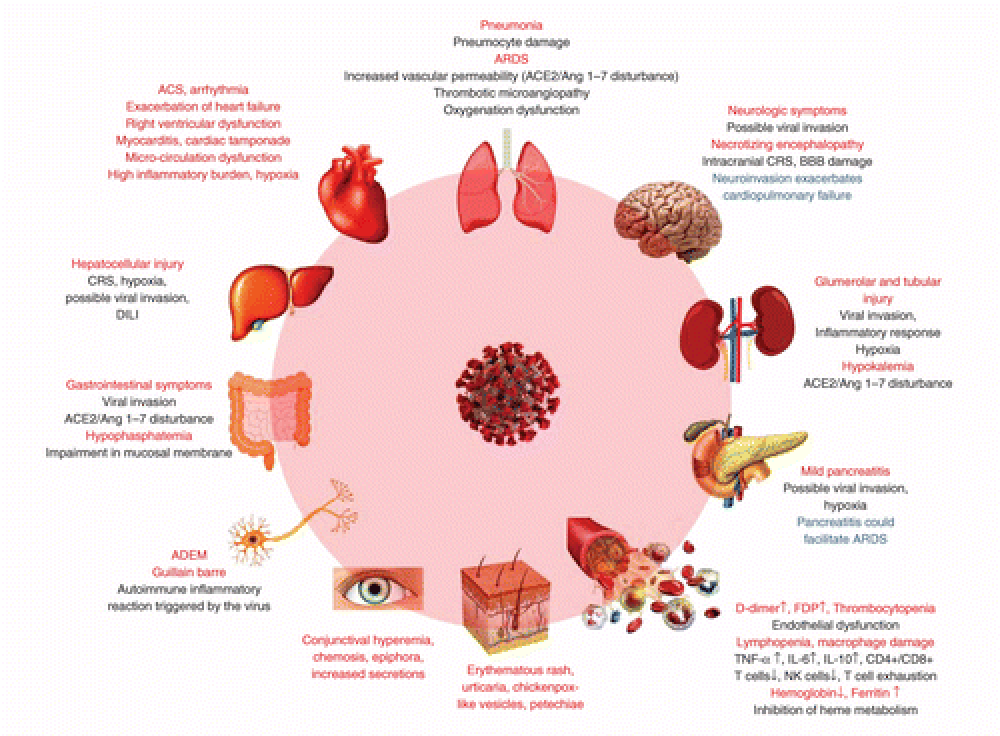Authors: Mary Van Beusekom | News Writer | CIDRAP News | Jun 26, 2020
Some COVID-19 patients, including those younger than 60 years old, appear to develop neurologic and neuropsychiatric complications such as stroke, brain inflammation, psychosis, and dementia-like symptoms, according to a study published yesterday in The Lancet Psychiatry.
The early-stage study of 153 hospitalized patients with confirmed, probable, or possible COVID-19 in the United Kingdom (UK) from Apr 2 to 26 identified 125 patients with complete data, of whom 77 (62%) had a stroke.
Of 125 patients, 114 (92%) had confirmed coronavirus infection, 5 (4%) had probable infection, and 5 (4%) were classified as possibly infected.
Stroke, encephalopathy, psychiatric diagnoses
Fifty-seven of 77 stroke patients (74%) had an ischemic stroke caused by a blood clot in the brain, 9 (12%) had a stroke caused by a brain hemorrhage, and 1 (1%) had a stroke caused by inflammation in the brain’s blood vessels. Sixty-one of the 77 stroke patients for whom age was available (82%) were older than 60 years.
Thirty-nine of 125 patients (31%) had behavioral changes indicative of an altered mental state, of whom 9 (23%) had unspecified brain dysfunction known as encephalopathy, and 7 (18%) had brain inflammation, or encephalitis.
The remaining 23 patients with altered mental states had psychiatric diagnoses, including 10 with new-onset psychosis, 7 with depression or anxiety, and 6 with a dementia-like syndrome. Only 2 patients (9%) had exacerbations of a chronic mental illness, although the authors noted that they cannot exclude the possibility that cases classified as new were simply undiagnosed before the pandemic.
Of the 37 of 39 COVID-19 patients with an altered mental state for whom age was available, 18 (49%) were younger than 60 years, which could be because they were more likely to be referred to a psychiatrist or other specialist, while physicians may be likely to attribute confusion or behavioral changes in older patients to delirium without further investigation, the authors said.
Altered mental states in younger patients
While altered mental states are not uncommon in hospitalized patients with infections, especially those requiring intensive care, they occur most often in older patients.
“In this study, we observed a disproportionate number of neuropsychiatric presentations in younger patients and a predominance of cerebrovascular complications in older patients, which might reflect the state of health of the cerebral vasculature and associated risk factors, exacerbated by critical illness in older patients,” the authors said.
For More Information: https://www.cidrap.umn.edu/news-perspective/2020/06/some-covid-19-patients-have-brain-complications-study-suggests
